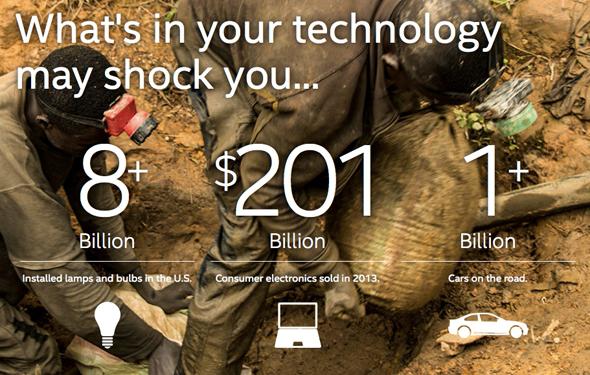You wouldn’t want anything sinister lurking in your smartphone. But the tin, gold, and other potential “conflict minerals” in there could have a checkered past if they were smelted in a war-torn country. The 2010 Dodd-Frank Act requires that companies who use conflict minerals in the manufacturing of their products submit reports to the Securities and Exchange Commission about where the metals came from. And the deadline for those reports is June 2. Time to see how everyone is doing.
Apple had already disclosed some conflict mineral information in a larger Supplier Responsibility Report earlier this year. But the company’s recent SEC filing goes into more specific detail. In 2013, Apple used 205 smelters, 21 of which got metals from the Democratic Republic of Congo—a country whose economy has been complicated and obscured by civil war. Four of the 21 DRC smelters have not yet been verified by third-party auditors as conflict-free.
Other companies have already submitted reports about their suppliers of the four conflict minerals, which are tin, gold, tantalum, and tungsten. HP reports that of 201 smelters it could identify in its supply chain, 60 are accredited. HP took steps to evaluate the other smelters and encourage them to improve their compliance, but in 2014 they will be continuing to “further mitigate risk and improve due diligence.”
Meanwhile, as Bloomberg reports, Intel has a five-person team working with smelters and tracing the money that goes through them. Intel reported an 83 percent response rate on surveys it sent to smelters. The company can find 158 smelters associated with its supply chain, 71 of which are certified conflict-free. As the initiative has gained recognition it has begun to spread to other companies.
You’ve probably never thought about the morality of the trace metals in your phone, and hopefully soon it won’t matter that you haven’t.
